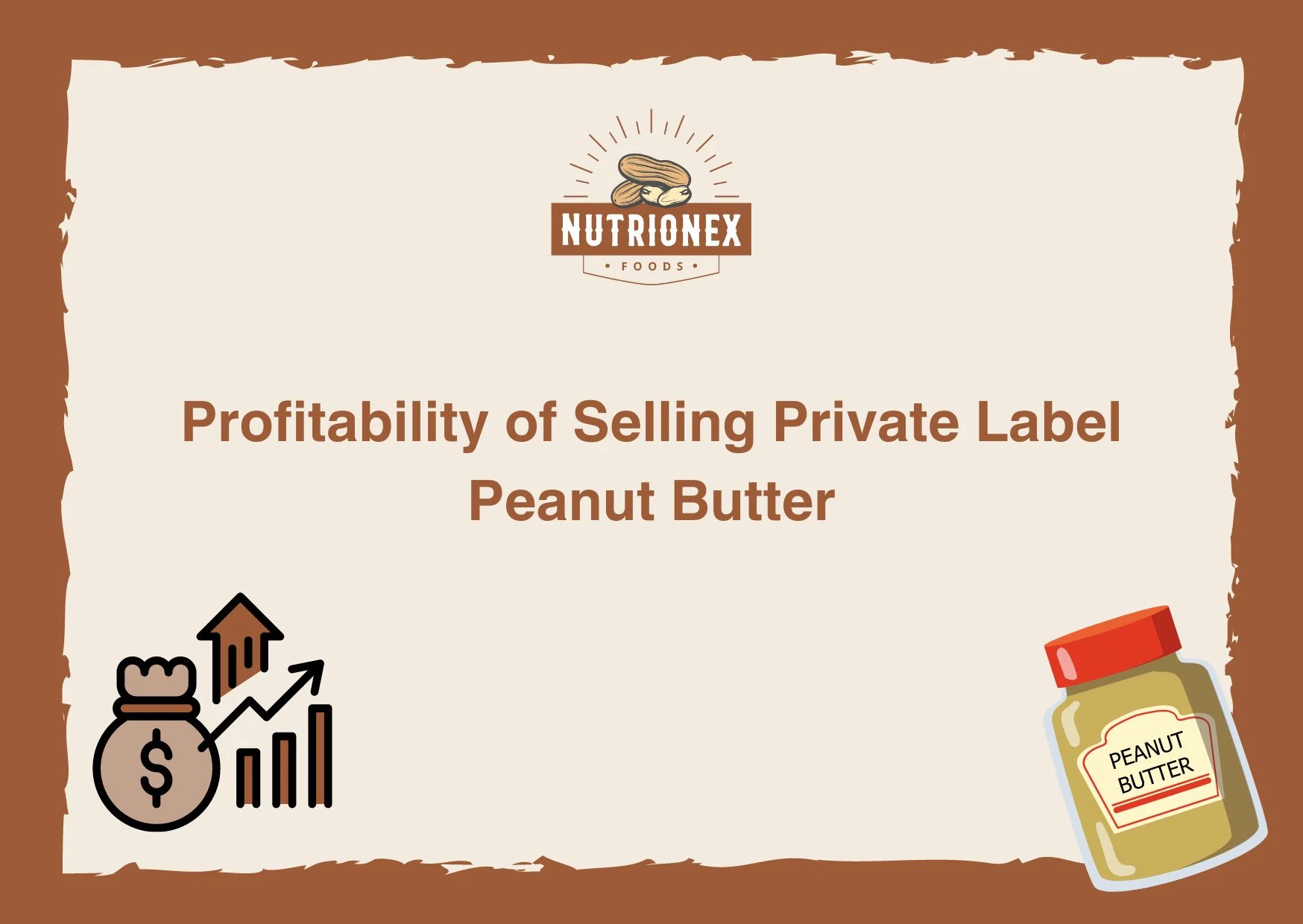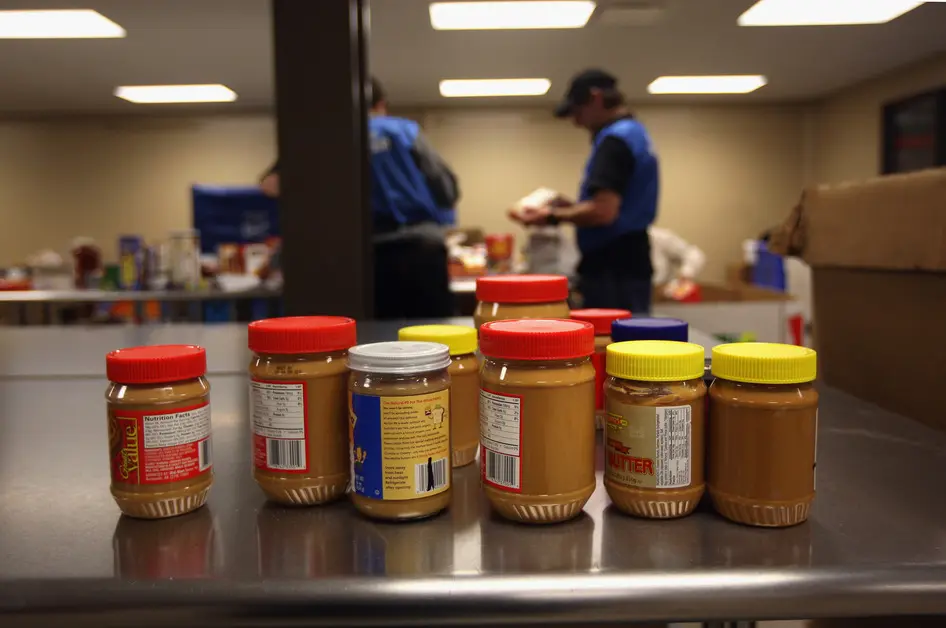
Profitability Of Selling Private Label Peanut Butter
You've probably noticed that peanut butter is everywhere these days. All those Jif's and Skippy's lining the shelves at the grocery store. Ever wondered if you could get in on the peanut butter game? Selling your own brand of the sticky stuff? Well, you're not alone. Lots of small businesses and entrepreneurs have been trying to cash in by selling private label peanut butter. But is it really profitable? Can the little guy actually compete with the big brands?
In this article, we'll take a look at the ins and outs of the peanut butter business. We'll break down the costs, talk profit margins, and help you figure out if selling private label peanut butter can be a money-making endeavor or just a sticky mess. So smooth or crunchy, let's take the lid off this business and see what's inside!
Market Analysis for Private Label Peanut Butter
Peanut Butter Demand
Peanut butter is a kitchen staple in many households. With its creamy texture and nutty flavor, it's a versatile spread used for sandwiches, baking, sauces and more. The demand for peanut butter remains consistently high - people simply can't get enough of this pantry essential.
Branded vs Private Label
While big brands like Jif and Skippy dominate grocery shelves, private label peanut butters are gaining popularity. Many shoppers perceive private label products as high-quality at a lower cost. This pricing advantage makes private label peanut butter an enticing option for cost-conscious consumers.
.webp)
Unique Selling Points
To stand out in this competitive market, consider offering unique flavors or formulations like:
-
Honey roasted peanut butter
-
Crunchy varieties with peanut pieces
-
Powdered peanut butter for baking
-
Organic or all-natural options
Offering specialty products can help you attract health-conscious shoppers and capture niche markets.
Distribution Channels
Private label peanut butter has opportunities in both retail and food service sectors. Grocery stores, big-box retailers, and online stores provide retail distribution. Meanwhile, restaurants, cafeterias and other food service operations need bulk peanut butter supplies. Diversifying your distribution can maximize sales potential.
With solid demand, cost advantages and room for product differentiation, launching a private label peanut butter could be a lucrative business opportunity. Careful market analysis is key to finding the right product positioning and target consumers.
Costs and Profit Margins of Producing Private Label Peanut Butter
The Raw Goods
Peanuts are the main ingredient and biggest cost driver when making private label peanut butter. Prices fluctuate based on crop yields and demand. You'll want to lock in bulk pricing from reputable suppliers who can provide consistent quality.
Other ingredients like salt, sugar, and vegetable oil are relatively inexpensive. But be picky about sourcing to ensure food quality and safety.
Production Overheads
Unless you have an existing facility, you'll need to factor in costs for leasing a commercial kitchen space that meets food production regulations. Equipment like industrial grinders, mixers, jarring assembly lines, and storage will require significant upfront capital.
Don't overlook operating expenses like labor, utilities, insurance, maintenance, cleaning supplies, and compliance inspections. These recurring costs can really cut into profitability if not managed carefully.
Packaging and Distribution
Eye-catching branded jars or plastic tubs make your peanut butter pop on store shelves. But fancy packaging increases per-unit costs.
Shipping and distributor fees for getting products into retail stores also eat into margins. Selling direct-to-consumer online with flat rate shipping could be a cheaper alternative to start.

The Profit Potential
With smart cost management, private label peanut butter has good profit margins of at retail pricing. Not outrageous, but a nice return for a relatively simple product to manufacture.
The key is scaling up production volumes through co-packing, strong branding, and securing contracts with major grocery chains to drive down per-unit costs. That's when the real money flows in for private label peanut butters.
Keys to Successful Private Label Peanut Butter Branding and Marketing
Stand Out with Unique Positioning
Let's face it - the peanut butter aisle is crowded. To thrive with your private label brand, you need a compelling unique selling proposition. What makes your product different? Is it all-natural ingredients? A signature flavor like honey roasted? Cater to a niche like keto or vegan consumers? Identify your brand's standout quality and make it the focal point.
Craft an Ownable Brand Identity
A strong brand goes beyond just a catchy name. Investing in professional branding and package design that resonates with your target market is key. Think bold colors, clever wordmarks, branded jars - elements that will make your peanut butter pop on shelves. And don't forget - consistent branding across all your touchpoints is crucial for brand recognition.
Tell Your Brand's Story
Consumers love products with an authentic backstory they can connect with. Was your recipe passed down for generations? Are you using ethically-sourced ingredients? Whatever your "founding story," share it proudly through creative marketing content. Social media, your website, even the label itself - every channel is an opportunity to build an emotional bond with buyers.

Highlight Product Quality and Benefits
While branding hooks customers, product quality is what keeps them coming back. Emphasize the high-quality, wholesome ingredients in your peanut butter through clear packaging callouts and marketing copy. And be sure to spotlight any unique benefits like high protein content, low sugar, or dietary certifications.
Partner with the Right Retailers
Widespread distribution is a must, but the retailers you choose to work with matter too. Carefully vet retailers whose brand image complements your own. An all-natural grocer may be perfect for a health-focused peanut butter, while a mass retailer could be ideal for an affordable everyday brand. Strategic partnerships reinforce your positioning.
Conclusion
So there you have it. Launching your own private label peanut butter can be a profitable venture if you do your homework and make the right choices along the way. The market has room for new entrants with unique value propositions. But quality control and managing costs will make or break you. Sourcing the right co-packer and materials is key.
Distribution and marketing take creativity and persistence. But the effort can pay off if you get the product right. People love their peanut butter and trying new artisanal options. So if you have the passion for peanuts and the business savvy to pull it off, go for it.
Create a distinctive recipe, come up with catchy branding, and get your jars on store shelves. You might have the next breakout pantry staple people can't resist. Just crunch the numbers, build the relationships, and grind it out. You'll be spreading the profits in no time.
